Cape Cod Times
Federal grant to fund PFAS testing in Hyannis
HYANNIS — The Silent Spring Institute has received a $1 million federal grant to test the impact of PFAS contamination in drinking water on adults and children in Hyannis and Ayer.
About 1,000 adults and 300 children are expected to participate in the study, with two-thirds of the participants coming from Hyannis, said Laurel Schaider, an environmental chemist at the institute in Newton.
Hyannis, which has a larger population than Ayer, has experienced a higher level of PFAS in the drinking water from the use of firefighting foams at nearby fire training areas, Schaider said.
“Hyannis will be a larger component of the study,” Schaider said Wednesday after Silent Spring sent out a press release announcing it had received the grant.
The $1 million award from the Centers for Disease Control and Prevention and the Agency for Toxic Substances and Disease Registry will allow researchers to collect blood and urine samples from study participants to test for thyroid, hormone, cholesterol, antibody and other levels, Schaider said.
Silent Spring’s research project is one of seven being funded through the registry’s new health study on PFAS in communities across the country. The study involves 6,000 adults and 2,000 children, Schaider said.
The grant covers the first year of a five-year project, Schaider said. She said Silent Spring anticipates receiving similar levels of funding for the next four years.
Since 2015, contamination by PFAS, a class of man-made materials thought to be associated with adverse health effects, has twice triggered public health advisories in Hyannis.
The advisories warned infants, pregnant women and nursing mothers against consuming water from the Hyannis water supply.
The Hyannis water system has taken a lot of steps to bring PFAS levels in line with state and federal standards, Schaider said.
Silent Spring researchers will work with Barnstable municipal authorities to determine the history of PFAS contamination in drinking water.
“We will provide whatever they need,” Barnstable Department of Public Works Director Daniel Santos said.
Santos noted that the town did not own the water supply system until 2005, when it took it over from the private Barnstable Water Company.
The town wrote a letter of support when Silent Spring applied for the federal grant, Santos said.
“It’s important we get as much science as we can on contaminants in drinking water and the implications of that,” Santos said.
Mashpee, West Tisbury and Joint Base Cape Cod also have dealt with PFAS chemicals commonly found in firefighting foams, stain- and water-resistant products, coatings, outdoor clothing, carpets and more.
Earlier this month, Gov. Charlie Baker filed a supplemental spending bill that would include millions of dollars to help cities and towns test and treat PFAS contaminants in their drinking water.
Also this month, the office of U.S. Sen. Elizabeth Warren, D-Mass., announced that the Federal Emergency Management Agency had awarded $636,365 to Cape Cod fire departments for a burn-building training structure at the county’s new fire training academy, which is planned for Joint Base Cape Cod.
Activities at the existing Barnstable County Fire and Rescue Training Academy in Hyannis have all but ceased due to PFAS soil and groundwater contamination on the property.
Last month, the Hyannis Water System began work on a $12 million water filtration building at the Maher Water Treatment Plant off Old Yarmouth Road. The facility will enable the system to meet anticipated new federal and state regulations that will be stricter for contaminants of emerging concern, including PFAS and 1,4-Dioxane.
Schaider is leading the Silent Spring project in collaboration with the Harvard T.H. Chan School of Public Health and Eastern Research Group.
Philippe Grandjean, a Harvard Chan School epidemiologist who is a co-principal investigator on the project, said in a press release it is important to understand the health impact of PFAS on vulnerable populations.
“There are critical periods in life when the body is sensitive to chemical exposures,” Grandjean said.
Schaider said this latest project is separate from a smaller study of the immunological risk of child exposure to PFAS, for which the institute will be recruiting subjects this fall.
Follow Cynthia McCormick on Twitter: @Cmccormickcct.
Cape Cod Times – Federal grant to fund PFAS testing in Hyannis
